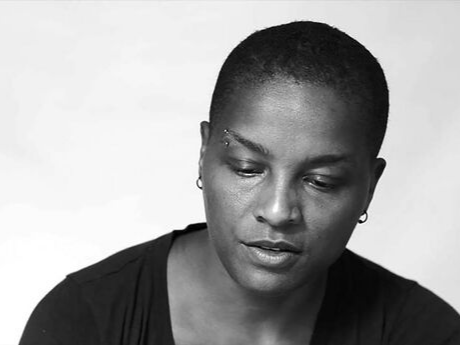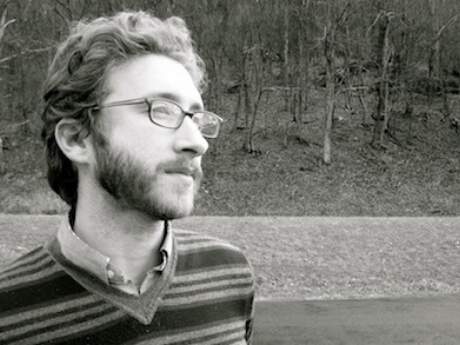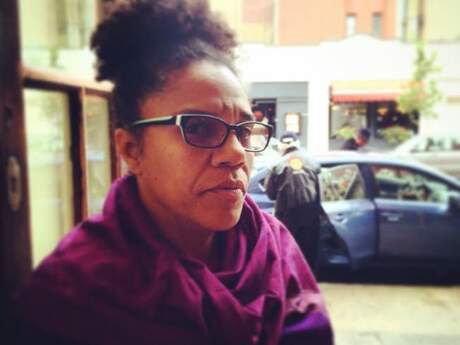New American Poets
New American Poets: Dawn Lundy Martin

Religion Song
Backward, our peculiar language.
Mama says, your life are your hands.
Count them. Spoken and leans
back into herself a lone blade
amongst a field. Each grass a palm
A straw hat on the old woman
who stands back to lone house
not smiling. A rake in her hands
Two coconut palm trees—
She would draw concentric circles in sand . . .
What yields in darkness?
A point of surrender.
The still music of captivity.
All the civility of work.
From The Morning Hour selected by C. D. Wright for the PSA National Chapbook Fellowship competition. All rights reserved.
[...]1
I. "I can't do it, poetry. I don't know what it is."
— Danielle Collobert
I am trying to write the story of my father's impending death. Its largeness. I step into the breach (or is it a presence?), pull it, seeping, through the skin. It opens—the body—fractures, becomes less a body. He is small. Like a child. The skin sags off the bones; the bones retreat. It is in the eyes, I think. They are soft. They are for the first time gentle—I cannot write it. Poetry fails. The fact that there is a page. The fact that the whiteness of the page is presence. Is already. Is Is-ness. I turn to Myung Mi Kim's attempted utterance in Commons: "[when my father died and left me nothing]" a long space on the page, and then, "[this is how I speak]." I, too, want to speak this silence. The hardness of silence, its tremendous matter, the nothing that is some thing, and of its coming.
II. "Speech that placed death in my mouth."
— Jean Daive
I capture a witness/reader in order to say, in order to be able to say, that I cannot say. See. In an old photograph, my father is a man. Broad shouldered. He poses behind the bar, smiling. A cigarette casual between the fingers. The image is seamless, finished, a literal white border encloses it. I think, he has never told me about the war. I am trying to write the story of my father's life. A poem that strains in huffs toward unmaking. Incessantly. Poem in pieces. The poem as object to be desired but never achieved. It is an effort in desire. A clamoring courtship. Fumbling hands. A schizophrenic circular poetics. Multi-voiced. Breath invoked. Forced inhale. Hot iron poking the same black spot. Quantities of sore. See? Dogs circle a whining prey. Indescribable prey.
III. "An unleashed tongue is an unmoored beauty."
—Beth Coleman
When I began this essay, I had intended to enter the space of my own poetic through the difficulty of writing about my father. To show how death is its own voice but cannot be spoken. [This reality informs my approach to writing both the personal and the political—when] Speaking can become a literal psychic breaking—breaking into. I wanted to ask questions about utterance (how does one say anything at all?), about the body that attempts speech but flounders and the body that makes no attempt but speaks, and about the consequence of this very moment—a poetic engagement in the now. I turn to a recent journal entry: It is the day before the first day of spring. It is the day after the first bombing of Iraq. It is the day that I confront my father as he speaks the body's last word. But I also wanted to write about liberation, about how the struggle to speak is the thing itself. How we fall taciturn or stammering or gurgling and how those utterances— those relations to speaking— feed the work, the poem, and despite their awkwardness, are beautiful.
1The Impossibility of Poetry


